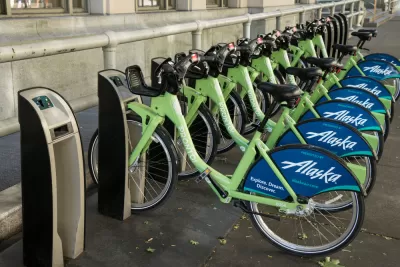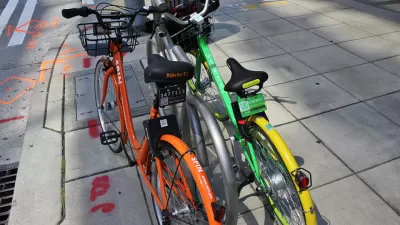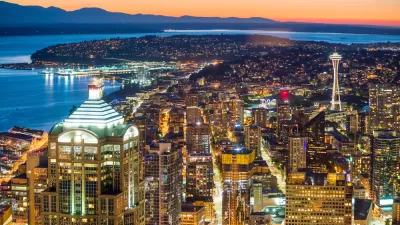Seattle's bikeshare found itself in a negative feedback loop of low ridership, lean revenue, and limited facilities.

[Updated March 1, 2017] Bikeshare programs went from novelty to ubiquitous in the last decade. Even small cities like Rapid City, South Dakota and Clarksville, Tennessee now have their own programs. But somehow Seattle, one of the country's denser, more active-transit-friendly cities, saw its bike share program die. "Pronto! isn’t the first bike share system to cease operations, but it might be the most prominent non-pilot program to shut down," Andrew Small writes for CityLab.
Small's article conducts an autopsy of the Seattle's Pronto! program and finds a number of causes of failure. One was a lack of density of stations, which made the system impractical for many who did not live or commute to places close to Pronto! stations. Another is the city's helmet laws, which made spontaneous rides less easy to achieve. There was also a lack of funding. Small argues that membership was expected to fund too much of the program. Small points to problems with the amount of government funding and the difficulty of getting corporate funding after the program failed to meet its membership goals.
[The story has been updated to correct the location of Rapid City.]
FULL STORY: The Four Horsemen of the Bike Share Apocalypse

Alabama: Trump Terminates Settlements for Black Communities Harmed By Raw Sewage
Trump deemed the landmark civil rights agreement “illegal DEI and environmental justice policy.”

Planetizen Federal Action Tracker
A weekly monitor of how Trump’s orders and actions are impacting planners and planning in America.

Why Should We Subsidize Public Transportation?
Many public transit agencies face financial stress due to rising costs, declining fare revenue, and declining subsidies. Transit advocates must provide a strong business case for increasing public transit funding.

Understanding Road Diets
An explainer from Momentum highlights the advantages of reducing vehicle lanes in favor of more bike, transit, and pedestrian infrastructure.

New California Law Regulates Warehouse Pollution
A new law tightens building and emissions regulations for large distribution warehouses to mitigate air pollution and traffic in surrounding communities.

Phoenix Announces Opening Date for Light Rail Extension
The South Central extension will connect South Phoenix to downtown and other major hubs starting on June 7.
Urban Design for Planners 1: Software Tools
This six-course series explores essential urban design concepts using open source software and equips planners with the tools they need to participate fully in the urban design process.
Planning for Universal Design
Learn the tools for implementing Universal Design in planning regulations.
Caltrans
Smith Gee Studio
Institute for Housing and Urban Development Studies (IHS)
City of Grandview
Harvard GSD Executive Education
Toledo-Lucas County Plan Commissions
Salt Lake City
NYU Wagner Graduate School of Public Service





























